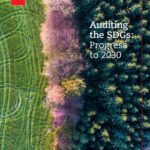California Ruling Means Nike Will Not Release Annual Corporate Responsibility Report
Nike, Inc. today (14/10) asked the U.S. Supreme Court to review an unprecedented California Supreme Court ruling that effectively does away with First Amendment protection for companies and organizations that speak out on public issues related to their business.
In papers filed today with the U.S. Supreme Court, Nike argued that "Not since New York Times Co. v. Sullivan has [the U.S. Supreme] Court been confronted with a lower court ruling as profoundly destructive of free speech" as the decision in this case.
Harvard University’s noted Constitutional scholar and leading Supreme Court advocate, Laurence Tribe, and former acting Solicitor General Walter Dellinger, head of the Supreme Court practice at O’Melveny & Myers, LLP, prepared today’s filing.
The company’s petition in Nike v. Kasky stems from a 4-3 ruling of the California Supreme Court sharply reducing the free speech rights of businesses and other groups, as well as the general public who want to hear about those operations. Today, Nike argued that the California ruling ignores decades of First Amendment decisions by the U.S. Supreme Court, which has noted that free speech and debate must have "breathing space" if the freedoms of expression are to survive.
The California court held that because a company’s public statements about its operations might persuade consumers to buy its products, those statements must be treated as run-of-the-mill commercial advertising, thereby warranting limited protection. To that, Professor Tribe and Dellinger wrote, "That theory goes beyond just uncomfortably constricting the breathing room for speech – it literally takes one’s breath away."
Further, the California court expressly applied its ruling to statements that appear in op-eds and editorials, as well as to comments made to reporters – not just to paid commercial ads. In this case, Nike’s speech involved such communications as letters to the editor, in which the company responded to public criticism about alleged workplace conditions in Asian footwear factories.
The California decision added that courts could suppress such public statements and allow monetary awards when the statements are deemed misleading, without regard to a company’s efforts to ensure that its statements were accurate when made.
In today’s filing, Professor Tribe and Walter Dellinger cited the comments of the dissenting California Justices who reasoned, "’Nike’s critics have taken full advantage of their right to ‘uninhibited, robust, and wide-open’ debate, [but] the same cannot be said of Nike, the object of their ire" solely because "Nike competes not only in the marketplace of ideas, but also in the marketplace of manufactured goods." "Handicapping one side in this important worldwide debate is both ill considered and unconstitutional."
Professor Tribe today added, "Uttering even a word would become far more risky than simply keeping silent, if this ruling stands."
Under the California ruling, Nike further explained, "Everyone in California has the right to sue any corporation that happens to sell any product or service in that state," and "[u]nder the relevant provisions of California law, ‘[a]llegations of actual deception, reasonable reliance, and damages are unnecessary.’"
"This case is about preserving the breathing room that free speech and debate need to thrive," said Walter Dellinger. "Unless all sides in a controversy play by the same rules, the debate will be distorted and the public will be deprived of a full and fair account of the issues."
Nike noted that any company’s statements are actionable so long as they can be read or heard in California. "The decision in this case will continue to substantially restrict the communication of important information regarding a uniquely valuable perspective on hotly debated social issues, and it will do so far beyond California’s borders." It added, "[T]he continuing prospect of liability under the Kasky holding casts a genuinely global pall over speech and will continue to cast that pall whatever happens on remand in this case "
Signifying the chilling effect of the lower court decision, Nike announced today that it would not publicly release its annual corporate responsibility report. The report reviews the initiatives and progress the company has made in its labor compliance, community affairs, sustainable development and workplace programs. The company already has declined to participate in several media interviews as well as invitations to speak at various business and academic forums due to the decision.
The California Court’s May 2 ruling, which overturned two lower court rulings, never addressed the truth or falsity of any of Nike’s statements.
In urging the Supreme Court to hear the case, Nike emphasized that the California ruling conflicts with U.S. Supreme Court precedent defining commercial speech. The company explained that the Supreme Court has articulated three tests for identifying commercial speech, asserting that its statements cannot be characterized as commercial speech under any of the tests "and not even the majority below seriously contended to the contrary."
The Beaverton based company further noted that the Supreme Court usually defines commercial speech as speech that does no more than propose a commercial transaction. But Nike’s filing asserts that its statements "obviously did not ‘propose a commercial transaction’ in any respect," adding "[t]heir editorials, comments to reporters, and even direct communications to consumers neither discussed particular products nor addressed the price or quality of the Nike line of goods."
A decision by the Supreme Court on whether to hear the case would be made in December 2002 or January 2003.



